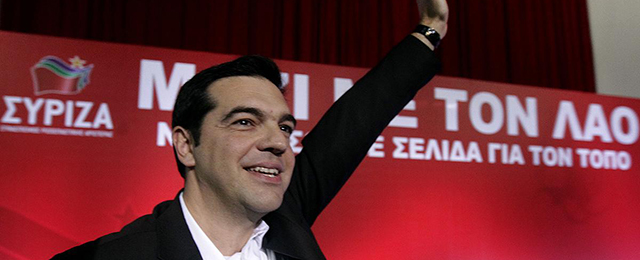Meetings in Brussels on Sunday between the Greek delegation and the Institutions ended without success in bridging a significant policy gap, including on fiscal measures and pensions. Also, on Thursday the IMF mission pulled out of the negotiations, citing the lack of progress. On Wednesday, ELA had been expanded by EUR2.3bn, which suggests that deposit outflows From Greek banks continue at a brisk pace. The banking system has lost nearly 23% of its deposits since November 2014.
Several media sources (eg, Financial Times, Bloomberg) are now discussing the possibility of Greek default without exit. If no agreement is achieved before the end of the month, capital controls would be required as the ECB would have to increase the haircut on Greek assets and eventually freeze any additional ELA. A default would also become highly likely, and we think it would quickly lead to Greece printing IOUs to make domestic payments. Default on the ECB-held bonds (EUR4.3bn of interest and principal maturing on 20 July) would trigger cross defaults even if a default on the IMF loans on June 30 may have less imminent consequences.
Political implications
We have argued that the cost of a U-turn by Greek Prime Minister Alexis Tsipras – that is, accepting the Institutions’ terms of an agreement – is likely to be a divided party, including raising opposition from radical Syriza MPs and possibly from its junior coalition partner, the Independent Greeks (see Greece: A crisis to avert a crisis, 21 May 2015). However, in our view, this is something that PM Tsipras could survive, politically. The chances of early elections would be high in this scenario, but the likelihood of Mr Tsipras to be re-elected seem fair, in our view, even without the more radical factions of Syriza.
Instead, under the alternative scenario of no deal with the Institutions, in all likelihood we believe Greek banks’ access to ELA funding could be frozen shortly after the end of the month when the programme expires, and bank controls to limit deposit outflows and transfers abroad would be required. In addition, this scenario would also mean a divided Syriza, with the more moderate members opposing the government´s decision not to reach a deal. We think a majority of Greeks would blame the government for the failure in the negotiations and the freezing of their deposits. In our view, PM Tsipras would be worse off in this scenario, and we think it is unlikely that the government would be able to survive it.






Be the first to comment on "Tsipras’s realpolitik moment approaches"